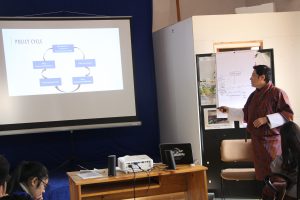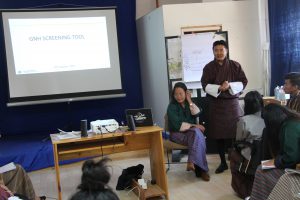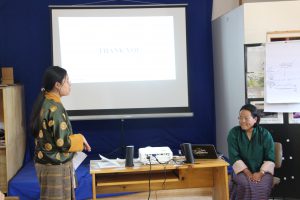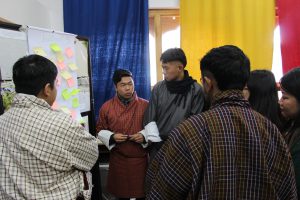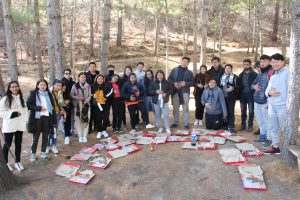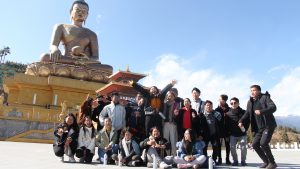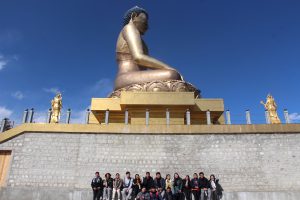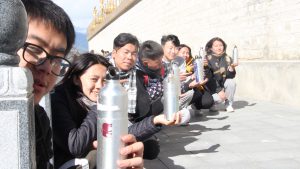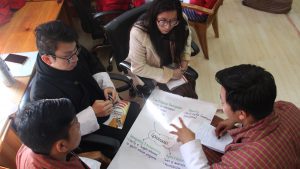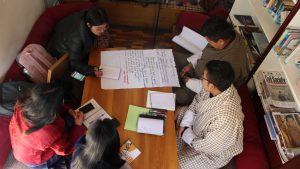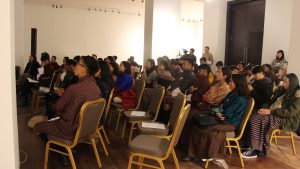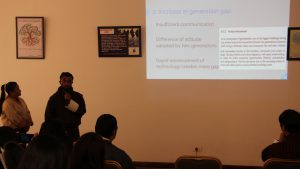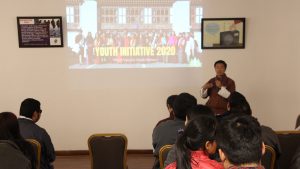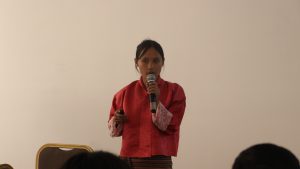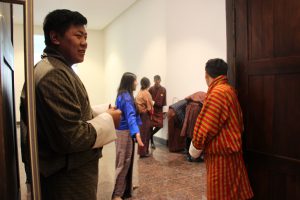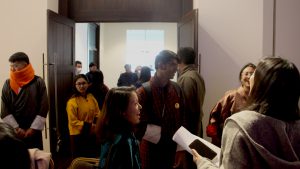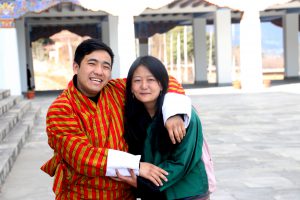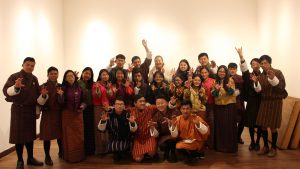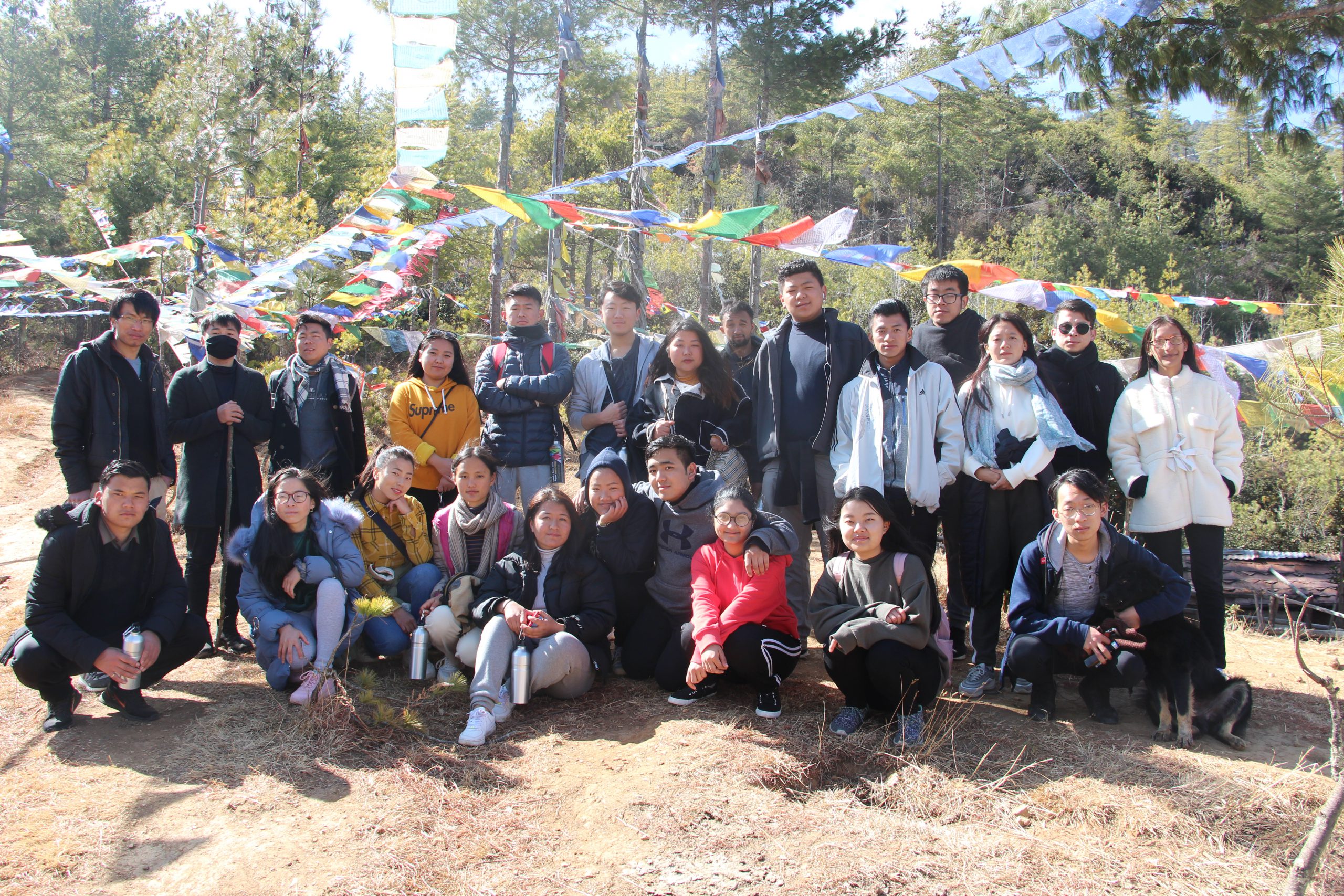
As YI turned six, it had an amazing opportunity to participate in reviewing the National Youth Policy (NYP) 2011. The review provides an opportunity to update the context to make it more representative and relevant to current and emerging needs.
Therefore, the aim was to integrate the opinions and critical perspectives of youth from diverse backgrounds, abilities, age and gender such as those with special needs, nuns and monks, LGBTQI, out-of-school youth, unemployed youths, school students (rural/urban), college students, rehab, drayang, technical institutes, sports, creative arts and those in conflict with the law. This holistic approach would provide the space to address aspirations, challenges and proposed solutions across a wide segment of youth.
At the conclusion of the camp, the youths presented their proposed revision of NYP to relevant stakeholders of the policy. Finally, they submitted their revision to the national consultant.

YI 2020 kicked off with ice-breakers and team-building exercises to create familiarity and safe space, which becomes the bedrock for sharing of opinions and ideas in the forthcoming days. Additionally, introduction to Youth Initiative's history, goals and importance was explained to invite the participants to the team. Day one ended with a session by DYS on the historical development of the NYP back in 2011.

Since the NYP 2011 was aligned with the framework of GNH, day two was dedicated to grasping a good working knowledge on GNH and its application in policy formulation. For this we collaborated with a former NC member, GNHC and GNH Centre to learn about GNH, good practices and models of youth participation in governance.
Day three helped delve deeper into the learning of day two by focusing on the GNH screening tool and policy lifecycle. We ended the day by exploring current trends and realities within six thematic areas based on their interest: Education & Learning, Health & Wellbeing, Economy, Socio-cultural Environment, Environment and Governance.
After a heavy two days getting a good grasp of GNH and the technical aspect of policy, members of YI 2020 took a break and went on the Sangaygang - Buddha point trail to enjoy nature and each other's company as we get to know each other deeper.
Day five followed up on the third day by forecasting the default future if the identified issues were to be left unattended. Subsequently an in-depth inquiry on exploring possible solutions was facilitated. It is critical for youth to have some understanding of not only what policy is and its purpose but also how to conduct review, principles and goals of such revision so they can make fruitful contributions. Hence, on the 6th day, participants were asked to reflect on their aspirations and deliver creative presentations on their envisioned future.
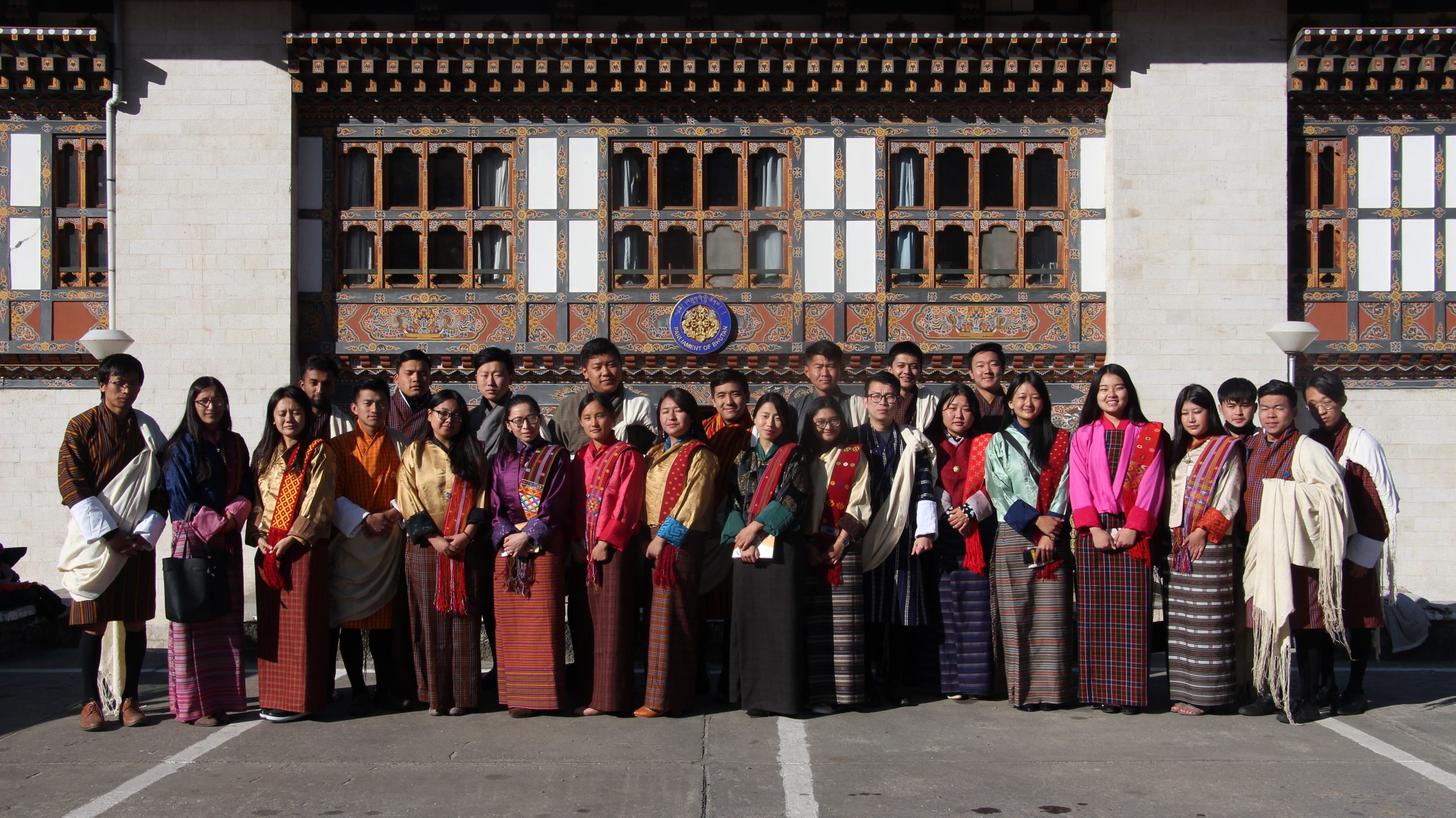
The participants had a field trip to the Parliament on day seven where they learned about the legislative process and its implications on overall governance and individual lives. They also had an opportunity to observe our parliament in session. After lunch, the day was dedicated to NYP revision based on six thematic groups divided previously. The prior training and presentations seemed to be very useful in the revision of the document as they compared their concerns, aspirations and solutions to those proposed in the NYP 2011.
